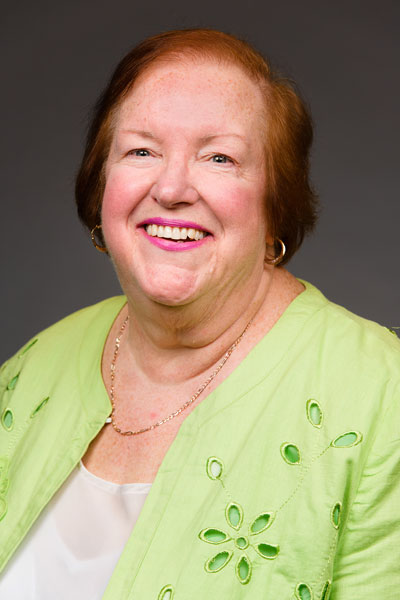UOAA conference speaker strategically uses humor to help ostomy patients
By Ed Pfueller, UOAA
If you’re a patient of Janice Beitz, PhD, RN, CS, CNOR, CWOCN-AP, CRNP, APNC, ANEF, FNAP, FAAN, she will likely look you in the eye and know when to employ humor and when not to. If you’re in a rut you may get an ostomy joke to break the ice. “You think this bag is full of crap? You should see my bother in law,” she once quipped, breaking down all barriers for a man struggling to adjust whose brother-in-law seemingly fit the description.

Dr. Janice Beitz is a longtime WOC Nurse and educator who will speak on the power of humor and hope in emotional healing after ostomy surgery.
Ostomy surgery and chronic illness is not a laughing matter, but how you handle it can be a key to your success. It does not seem to be a coincidence that some of the most well-adjusted ostomates tend to have a sense of humor. Humor can change a negative mindset for you and those around you.
Dr. Beitz has over 40 years of nursing experience in acute, sub-acute and outpatient care settings. She’s explored the science behind laughter and health in academia and has seen it in patient settings. She will be a featured speaker at UOAA’s National Conference in Philadelphia this August.
Her talk is entitled, Intestines Are Soooooo Overrated: Psychosocial/Physiological Issues For Ostomates. She’ll discuss the social, psychological and physical issues of having a fecal or urinary diversion. The session will describe the findings from scholarly work on these areas of interest. Strategies for ostomates to achieve a high quality of life including therapeutic use of humor will be emphasized.
Dr. Beitz also teaches the next generation of WOC Nurses as the director of the Rutgers University Camden Wound Ostomy Continence Nursing Education Program (WOCNEP). Students she has taken to visit the jovial and globetrotting members of the Ostomy Support Group of Philadelphia have left in shock. “They turn to me and say these people have traveled more and have a better life than I do!” Dr. Beitz said.
“They are seriously funny,” Dr. Beitz says of the Philadelphia group led by Stanley Cooper that is always laughing and living life to the fullest.
“She is committed to her students. She is committed to all WOC nurses, and she is committed to all patients that need a WOC nurse to ensure they receive the best possible care,” Stanley remarked.
“Janice loves to have a good laugh and will supply a good laugh when she can. When she spoke to our group, she started off with a funny cartoon from a newspaper that she projected on a screen.” Stanley.
“One thing she said to me after her appearance was that she always wanted to enter a room after being introduced to KC and the Sunshine Band singing Get Down Tonight. That is the type of good spirited, happy, energetic person that she is” Stanley said.
Emotional health will be touched upon in many other conference sessions as well. A session geared toward young adults will address body image and self-confidence with an ostomy. Relationships and sexuality sessions will often center on emotional health as well. Overcoming physical challenges often comes quicker than lingering emotional ones.
For those who have not had a UOAA Affiliated Support Group experience, the peer support at conference can provide a sense of camaraderie that gives an enlightening experience for the many who still struggle with the day-to-day challenges of living with an ostomy. Caregivers are also not forgotten at conference with a session on how to cope with caregiver stress.
UOAA’s vision is a society where people with ostomies and intestinal or urinary diversions are universally accepted and supported socially, economically, medically and psychologically. Connect with us locally, online or at conference and get on a positive path.
At the conference, perhaps we can arrange to turn up “Get Down Tonight” as we welcome Dr. Beitz to give us a laugh and hope about life with an ostomy.



